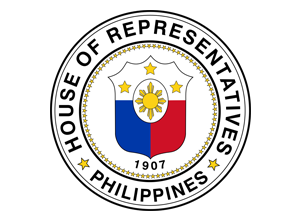Silver linings

Last October 1-8, 2021, the Commission on Elections accommodated thousands of candidacy applications submitted by several aspirants coming from traditional political families, civil society leaders, entertainment industry, and the marginalized sector aiming to land on national and local electoral positions.
As of this writing, a total of 97 presidential hopefuls and 29 vice presidential aspirants have already submitted their certificates of candidacy. The COMELEC is expected to trim down this long list to eradicate nuisance voters; however, the country is still waiting for possible events and political theatrics as November 15 approaches since the date serves as the deadline for possible candidacy substitution.
Despite the pandemic, the political excitement is evident everywhere particularly in social media. Due to mobility restrictions and ban for large gatherings, the upcoming 2022 elections will serve as a unique event in Philippine political history. In particular, one can already feel the political heat between supporters of different political personalities and factions as netizens are already in “battle mode” in social media engaging fellow netizens by expressing their political opinions and adversarial attitudes towards other users who do not share the same political beliefs.
Given the current political climate, it is commendable that Filipinos are now gradually abandoning their apathetic political attitude in the past. Aside from increasing political discussions present in the social media, the increasing number of people who are interested to register to vote that compelled the COMELEC to extend voter registration until the end of October 2021 is indeed a positive sign. Filipinos are now conscious of the importance of voting as a demonstration of one’s civic duty and responsibility. However, the current obsession towards those who will run for the positions of President and Vice President poses a problematic aspect because of the following reasons rooted from our disregard about what the real essence of being a democratic republic.
First, as a democracy, there is a need to remind the populace that political power in the country is not concentrated in a single office but specifically arranged to be shared with other co-equal branches.
Second, as a republic, Filipinos will not only elect persons for national posts but for other positions that will serve as a representation of our needs, interests, and welfare. Specific examples are the senators, district and party-list representatives, and local government officials. In fact, local governments are granted by law, on a certain extent, autonomy from the national government; thus, giving LGUs the task and responsibility to chart their respective trajectories and development strategies.
Luckily, since 2019, the country has witnessed the rise to power of new officials in the local government levels that provided a breath of fresh air in Philippine politics. This new breed of officials – mostly coming from the millennial generation – proved that Philippine politics and governance still have an optimistic future.
One may ask, what’s the deal with millennial leaders? Aren’t they just lucky because they possess the resources and support that enabled them to win in the previous elections? Regardless of whether these millennial officials came from traditional political clans (trapos) or as newcomers in the trade (bagitos), their generation has a lot to put on the table.
One distinguishing characteristic observed among millennial leaders is their passion for leadership. These leaders view the world with fresh eyes and tend to pursue a horizontal and collaborative mode of governance and management. These leadership qualities are rare traits present among politicians who belong to the previous generation accustomed to hierarchy.
Another important contribution of millennial leaders is their brimming creativity and innovation. By looking at their credentials, these millennial leaders either received tertiary education from the leading Philippine universities while some also experienced studying in foreign higher education institutions. Their academic training and experience shaped them as individuals who are capable of “thinking outside the box”. They are known for their flexibility and willingness in learning and adapting to specific situations.
Moreover, these leaders are also aware of the importance of global developments affecting the Philippines such as but not limited to economic globalization and the fourth industrial revolution (4IR) that will or currently affect their local constituents.
A specific manifestation proving the edge of millennial leaders compared to older politicians was the stellar performance of some cities and municipalities steered by millennial local leaders during the early days of the pandemic in 2020. A specific report cited that these local government units led by millennial mayors are some examples of possible models for local pandemic response, namely, of Pasig City, San Manuel (Tarlac), Alaminos (Pangasinan), Angono (Rizal), Olongapo City, and Alfonso (Cavite).
Specifically, aware that the pandemic is both a health and economic problem, these millennial local leaders have demonstrated their innovative strategies to their constituents through the following examples. One aspect is their creative way of immediate provision of food aid to their constituents residing in impoverished areas during the height of the lockdowns. Another proof is their response to provide assistance and livelihood to informal economic workers who lost their employment and income sources caused by mobility restrictions and lack of customer traffic. Lastly, these local leaders were also known for their inventive strategies to encourage their constituents to get tested and vaccinated to decrease the rate of community transmission in their localities.
The entrance of millennial politicians in the Philippine political landscape serves as a silver lining for the Filipino public to continue to hope for a brighter future for the country. While the pandemic temporarily stalled several local government projects as funding needs to be re-aligned to provide social relief to constituents affected economically, imagine if these new leaders were able to deliver their respective plans throughout their three-year tenure? Will the country witness the emergence of novel local governance models to emulate? Will we expect formulation of new sets of best practices that can serve as inspiration to other LGUs and even to the national government?
In order for Philippine governance to succeed, Filipino voters should understand and accept the reality that the fate of our country is not only dependent on who will win the presidency. The Philippine democratic republican government is a system that requires each part of the state to function properly. Investing time and effort to discern and promote the best candidate to be elected in other national and local positions is not a futile allocation of one’s resources, but a concrete demonstration of one’s civic duty and commitment.
As we anticipate the release of the final list of candidates by COMELEC this November, will we see another influx of more passionate, younger candidates entering the political realm to deliver change and social transformation? While a definite answer at present is absent, the very fact that millennial leaders are now penetrating the political circles once monopolized by the previous generations is a good sign that there is still a good reason to be optimistic with the coming 2022 elections.


